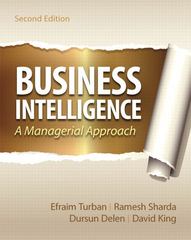Answered step by step
Verified Expert Solution
Question
1 Approved Answer
Brazil Brazil is located in eastern South America along the Atlantic Ocean. With a land area just smaller than that of the United States, the
Brazil Brazil is located in eastern South America along the Atlantic Ocean. With a land area just smaller than that of the United States, the country possesses abundant natural resources, including bauxite, gold, iron ore, manganese, nickel, phosphates, platinum, tin, rare earth elements, uranium, petroleum, hydropower, and timber. The country also features a number of globally competitive manufacturing companies. Embraer, one of the world's leading producers of mid-range passenger and military aircraft, and Odebrecht, a diversified conglomerate that develops and installs mass transit systems, sports stadiums, chemical production facilities, and other infrastructure projects, are both located in Brazil.77 (Links to an external site.) Gaining its independence from Portugal in 1822, Brazil adopted a federative republic system of government. This governmental process includes compulsory voting requirements for those between the ages of 18 and 70. With more than 200 million people and annual population growth of close to 1 percent, Brazil is one of the most populous countries in the world. The country has moved toward urbanization over the last 50 years; nearly 20 percent of its population now lives in either So Paulo or Rio de Janeiro, and approximately 85 percent of all Brazilians live in an urbanized area. Brazil is a diverse place culturally and ethnically. The primary and official language is Portuguese, but Spanish, German, Japanese, and English are also spoken with some regularity. The country is predominantly Christian, with two-thirds of all Brazilians identifying as Roman Catholic. Like most growing developing nations, the vast majority of the population is younger than 55 years old and the median age is only 32.4 years old.78 (Links to an external site.) Brazil has the largest economy in all of South America and the ninth largest in the world. That being said, the economy has faced serious challenges both recently and historically, including multiple recessions, high inflation, and currency volatility. In 2018, Brazil's GDP was US$2.139 trillion, but growth has been erratic. After a deep economic recession in 2016, the GDP annual growth rate has been steadily recovering, with 1 percent growth in 2017 and 2 percent growth in 2018. Inflation has also lowered from nearly 10 percent in 2016 to 4 percent in 2018, although double-digit unemployment remains worrisome.79 (Links to an external site.) The country's main agricultural products include coffee, soybeans, wheat, rice, corn, sugarcane, cocoa, citrus, and beef. Textiles, shoes, chemicals, cement, lumber, iron ore, tin, steel, aircraft, and motor vehicles constitute its main manufactured products. In the global industrial and manufacturing sectors, Brazil has been suffering largely due to its reliance on commodity exports, which have seen demand fall. Brazil is frequently ranked as a difficult place to conduct business (the country finished 109th out of 190 nations in the 2018 "Ease of Doing Business" rankings). In 2018, Brazil's debt rating was downgraded to "below investment grade," making it even more difficult to find foreign investors and international credit markets.80 (Links to an external site.),81 (Links to an external site.) Brazil was chosen as the host country for both the 2014 World Cup and the 2016 Summer Olympics. Events such as these give a country the chance to grab worldwide attention and showcase the best that the country has to offer. Additionally, if well managed, these types of events can be a netpositive economically due to ticket sales, sponsorship, and television deals. While the 2014 World Cup was held without any major disruptions, the 2016 Olympics faced numerous issues in the months leading up to the event. Negative press over inadequate infrastructure, construction worker safety, and contaminated water causing serious disease dominated news coverage in the spring of 2016. Furthermore, public concern over the spread of the Zika virus resulted in lower-than-expected ticket sales and fewer tourists.82 (Links to an external site.) As a result, Brazil investors lost an estimated US$200 million on the event, and custom-built sporting venues now sit abandoned throughout Rio de Janeiro.83 (Links to an external site.) Despite these challenges, Brazil remains the largest and most important economy in South America and one that will continue to exert influence over the greater global environment. You Be the International Management Consultant Over the past few years, low oil prices and an economic recession have given foreign investors a reason to doubt the strength of the country's economy. In addition, many investors are fleeing from the country after a controversial pension reform plan was approved in 2019. The country is still recovering from a bribery scandal involving the country's state-owned oil company, Petrobras, that broke a few years earlier (and ultimately brought down Brazil's president). Petrobras reported losses of US$2 billion solely as a result of the scandal. One organization that has pulled out is the Bill and Melinda Gates Foundation, which not only has decided to cease operations in the country but also is suing the oil company for its role in the scandal and various investments the company made. Furthermore, several states in the U.S. Page 379invested pension funds in Brazil's economy and are suing for close to US $100 billion. Questions 1.As an international management consultant, what advice would you give to a foreign company looking to move operations into Brazil? 2.Do you think Brazil still holds the potential for future growth? 3.As an investor, do you think that the "buy low" mindset applies to Brazil? If not, what changes would you like to see before making any investment in the country
Step by Step Solution
There are 3 Steps involved in it
Step: 1

Get Instant Access to Expert-Tailored Solutions
See step-by-step solutions with expert insights and AI powered tools for academic success
Step: 2

Step: 3

Ace Your Homework with AI
Get the answers you need in no time with our AI-driven, step-by-step assistance
Get Started


